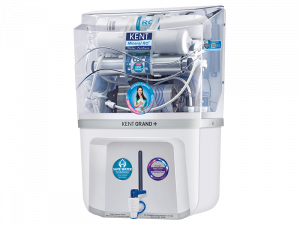The Relation Between Water Intake and Kidney Health
Chronic kidney disease, which is one of the most common ailments faced by people, affects approximately 10% of people worldwide. Though the number of people affected in India is not clear, however, according to the Global Burden of Disease (GBD), chronic kidney disease is the eighth leading cause of death in India. One of the silent killers, kidney disease is mainly caused by unhealthy habits such as eating habits, high blood pressure, smoking, and a family history of kidney disease. The only way to keep your kidneys healthy is by drinking enough water and of course switching to a healthy lifestyle. Read the blog to find out the relation between water intake and kidney health.
Factors Causing Kidney Disease
The two most common reasons for kidney disease in India, in both men and women, are:
- Hypertension
- Diabetes
However, women are more affected by certain kidney conditions such as urinary tract infections (UTI) as compared to men. UTI leads to infection, scarring of kidneys, and autoimmune diseases such as Rheumatoid Arthritis and Systemic Lupus Erythematous.
In addition, some of the other reasons for kidney failure are:
- Blood clots around the kidneys
- Infection
- Uncontrolled diabetes
- Overload of toxins from heavy metals
- Inflammation of blood vessels
- Use of certain antibiotics
Symptoms of Kidney Disease
Detecting kidney disease at the initial stage can help in avoiding damage. Some of the common symptoms of kidney disease are:
- Sleeplessness – The impurities present in the blood when your kidneys fail to function properly making it difficult to sleep
- Skin problems – Kidneys don’t generate the right amount of minerals resulting in dry and itchy skin
- Swollen feet and ankles – Kidney malfunction leads to sodium retention resulting in swollen ankles and feet.
- Loss of appetite – Toxin build-up reduces kidney function and lack of appetite.
Is Purified Ro Water Good for Kidneys?
Water helps the kidneys remove wastes from the blood in the form of urine. Staying hydrated also opens up your blood vessels, thereby helping the blood to travel freely to the kidneys and also delivering essential nutrients. When you are dehydrated, it becomes difficult for your kidneys to remove waste and makes it difficult for the delivery system to work. Even mild dehydration can make you tired and impair your body’s functioning. Severe dehydration leads to kidney damage, which is why it is important to drink enough water or exercise hard, especially if you live in warm and humid areas.
1. Eight glasses of water should not be the benchmark
A common myth that people believe in is they need to drink eight glasses of water. The truth is there is no hard and fast rule that you must drink 8 glasses of water. The amount of water that you need to drink depends on a lot of factors such as climate conditions, physical activities, and body weight.
2. Avoid drinking too much water
This is more applicable for endurance athletes such as marathon runners. They may tend to drink excessive amounts of water, which can dilute the sodium level in the blood. This may result in a dangerous condition which is known as hyponatremia or water retention.
3. Prevents Kidney Stones and UTI
The two common medical conditions can have an effect on your kidneys. When you are dehydrated, crystals stick together and form kidney stones. Water prevents the crystals from accumulating easily and keeps you safe from kidney stones. In addition, hydration also helps in dissolving the antibiotics that treat UTIs. When you are hydrated, it becomes easy to flush out infection-causing bacteria. Read More : Health Benefits Of Drinking Pure Water
Last Few Words

Drinking the right amount of water is the only way to keep your kidneys healthy and prevent diseases. However, make sure you drink RO purified water to remove impurities present in water, which can lead to a number of deadly diseases. The water purifiers use multiple purification technologies to remove contaminants and add the essential minerals that are lost during the purification process using Mineral ROTM technology. Before installing a water purifier, make sure you get the water quality tested to know which purifier will be the best for you. To get a free water test, click here.





